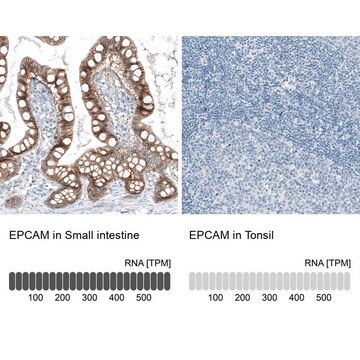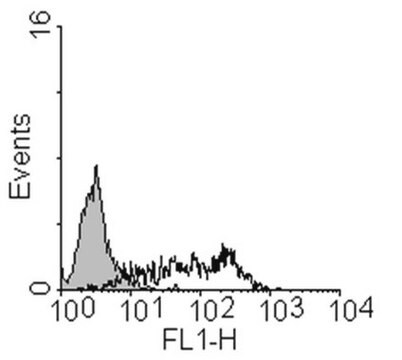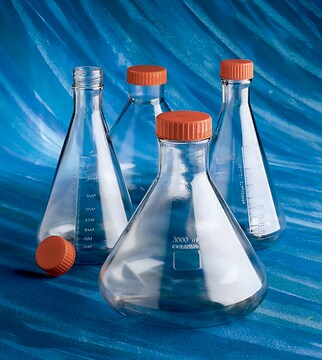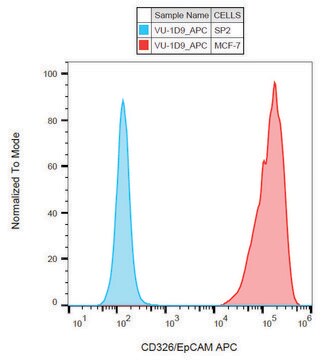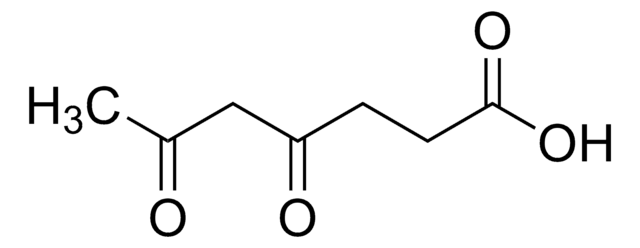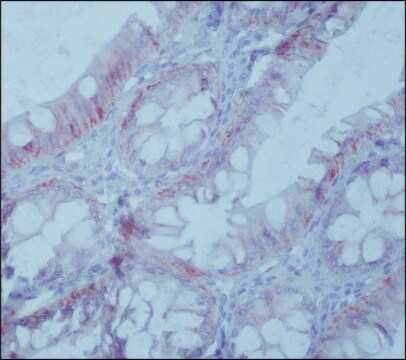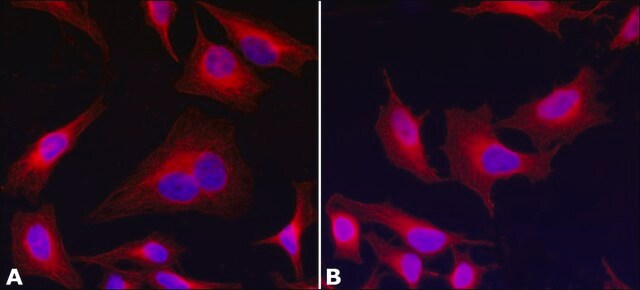ZRB1215
Anti-EpCAM Antibody, clone 1B8 , ZooMAb® Rabbit Monoclonal

recombinant, expressed in HEK 293 cells
Sinônimo(s):
Adenocarcinoma-associated antigen, CD326, Cell surface glycoprotein Trop-1, EGP, EGP314, Epithelial cell adhesion molecule, Epithelial cell surface antigen, Epithelial glycoprotein, Epithelial glycoprotein 314, KS 1/4 antigen, KSA, Major gastrointestinal tumor-associated protein GA733-2, Tumor-associated calcium signal transducer 1, hEGP314
About This Item
Produtos recomendados
fonte biológica
rabbit (recombinant)
Nível de qualidade
recombinante
expressed in HEK 293 cells
conjugado
unconjugated
forma do anticorpo
purified antibody
tipo de produto de anticorpo
primary antibodies
clone
1B8, recombinant monoclonal
linha de produto
ZooMAb® learn more
Formulário
lyophilized
peso molecular
calculated mol wt 34.93 kDa
observed mol wt ~38 kDa
reatividade de espécies
human
embalagem
antibody small pack of 25 μL
características do produto alternativo mais ecológico
Waste Prevention
Designing Safer Chemicals
Design for Energy Efficiency
Learn more about the Principles of Green Chemistry.
validação aprimorada
recombinant expression
Learn more about Antibody Enhanced Validation
sustainability
Greener Alternative Product
técnica(s)
flow cytometry: suitable
immunofluorescence: suitable
immunohistochemistry (formalin-fixed, paraffin-embedded sections): suitable
western blot: suitable
Isotipo
IgG
nº de adesão UniProt
categoria alternativa mais ecológica
Condições de expedição
ambient
temperatura de armazenamento
2-8°C
modificação pós-traducional do alvo
unmodified
Informações sobre genes
human ... EPCAM(4072)
Descrição geral
Each ZooMAb antibody is manufactured using our proprietary recombinant expression system, purified to homogeneity, and precisely dispensed to produce robust and highly reproducible lot-to-lot consistency. Only top-performing clones are released for use by researchers. Each antibody is validated for high specificity and affinity across multiple applications, including its most commonly used application. ZooMAb antibodies are reliably available and ready to ship when you need them.
Learn more about ZooMAb here.
Especificidade
Imunogênio
Aplicação
Immunofluorescence Analysis: A 1:100 dilution from a representative lot detected EpCAM in human small intestine tissue sections.
Immunohistochemistry (Paraffin) Analysis: A 1:10 dilution from a representative lot detected EpCAM in human colon cancer and human cervical cancer tissue sections.
Flow Cytometry Analysis: 1 µg of a representative lot of this antibody detected EpCAM in one million fixed and permeabilized HT29 cells.
Note: Actual optimal working dilutions must be determined by end user as specimens and experimental conditions may vary.
Descrição-alvo
forma física
Reconstituição
Armazenamento e estabilidade
Informações legais
Exoneração de responsabilidade
Não está encontrando o produto certo?
Experimente o nosso Ferramenta de seleção de produtos.
Código de classe de armazenamento
11 - Combustible Solids
Classe de risco de água (WGK)
WGK 1
Ponto de fulgor (°F)
Not applicable
Ponto de fulgor (°C)
Not applicable
Escolha uma das versões mais recentes:
Certificados de análise (COA)
Não está vendo a versão correta?
Se precisar de uma versão específica, você pode procurar um certificado específico pelo número do lote ou da remessa.
Já possui este produto?
Encontre a documentação dos produtos que você adquiriu recentemente na biblioteca de documentos.
Nossa equipe de cientistas tem experiência em todas as áreas de pesquisa, incluindo Life Sciences, ciência de materiais, síntese química, cromatografia, química analítica e muitas outras.
Entre em contato com a assistência técnica

